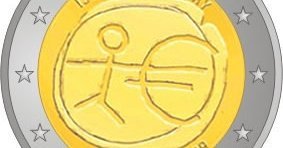The ECB is nowadays considered as perhaps the only central bank able (and willing) to keep inflation stable, and receives worldwide recognition for this policy. The prior concern about price stability is not just a mere ideological concern, but is the fruit of the top economic research being done at the ECB. The respectability of the ECB is also fortifying the increasing role of the euro in global markets.
Moreover, and this was a reason for great concern back in 1998, the ECB has been able to steer between the political discussions on the stabilisation of the economy, and the tradeoff with price stability, in a masterly way. At the same time, the ECB is the only truly federal institution of the European Union, and the faultless working of the internal structure of the ECB (both at the Eurotower in Frankfurt, and in the Eurosystem) shows the success of bundling the capacities of all Europeans.
ageing, technological change and globabilisation are going to change the economy in the next decades, and this requires different responses of monetary policy
Does this mean that the life of the euro will continue to be a success-story in the future? There are several challenges that the ECB is currently facing. As the current president Jean-Claude Trichet mentioned in a recent interview with the Financial Times, ageing, technological change and globabilisation are going to change the economy in the next decades, and this requires different responses of monetary policy. A specific challenge in the next years will be the smooth integration of the new EU member states in the eurozone.
The true challenge may be political, rather than economic, however. The basic question at the start of the European Monetary Union (EMU) ten years ago has not gone away: how long can an economic union continue without a political union? Countries do not need to have their own money, but there are some good reasons why there are no moneys without a state.
A common currency imposes quite some restrictions on the economic policies that every member state can adopt.
First, governments cannot spend lavishly on new projects without the adequate financing. Budget deficits need be contained in a monetary union: the EMU cannot do without a Stability and Growth Pact.
Second, adjustment to economic turbulence requires flexibility in markets. People should be able to change jobs more quickly; prices should be allowed to adjust easily. The Lisbon Strategy rightly focuses on policies to improve the adjustment capacity of the European economies.
Flexibility requires policies that can be quite impopular, however. This can have big political effects, and undermine the belief that economic and political integration is beneficial for the EU citizens. A closer coordination of policies across EMU member states could counter this. Unfortunately, discussions in the EU on closer coordination still bite in the constitutional sand.
The biggest danger for EMU is probably the faltering willingness to push ahead for a political union. The question is how far the EMU will hold under a political crisis in one country. Will a secession threat convince the governments?

Follow the comments: |
|
